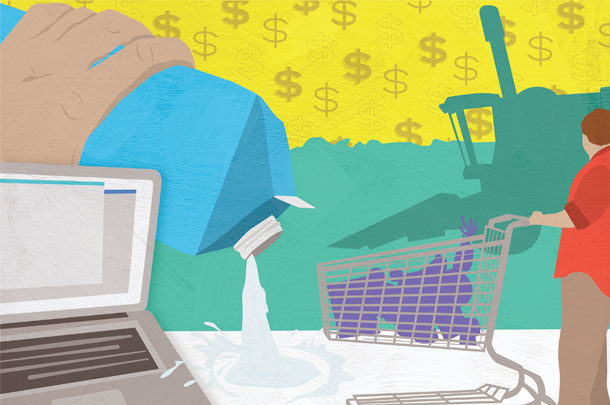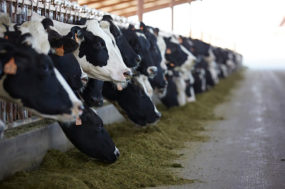It’s no secret the coronavirus pandemic has changed the way people are thinking about food. Half-empty grocery store shelves brought on by panic buying at the start of business shutdowns were a reality in many parts of Canada.
There were disruptions in supply chains, as international travel was limited and nights out at restaurants were effectively halted. “The curtain has come down,” said Jo-Ann McArthur, president of Nourish Food Marketing, noting the impact of the pandemic has led to an increase in consumer questions about Canada’s food system.
McArthur spoke with Len Kahn, president of Kahntact, in Part 3 of the three-part webinar series “The Future of Food in the Pandemic Era,” hosted by Laura Rance as part of this year’s Canada’s Outdoor Farm Show held between Sept. 15-18. Other speakers in the series were Sylvain Charlebois, professor at Dalhousie University; and Evan Fraser, professor at the University of Guelph.
“It has been a whole awakening, and I think in the long term that’s going to be a positive, if we don’t squander the opportunity,” Kahn said. He added the pandemic has brought attention to issues like logistics and distribution, which are otherwise rarely discussed. McArthur agreed with Kahn’s sentiment and said she believes support for domestic producers will increase, as people look to support those in their communities during these difficult times. “There’s a new appreciation for farmers,” McArthur explained.
Further recognizing the impact the pandemic has had on the Canadian food system, McArthur and Kahn noted some pre-existing deficiencies were exacerbated or revealed during the pandemic. “We have become very efficient in how we produce food – and by being so efficient, we have gotten rid of any kind of cushion,” McArthur said. Kahn explained the consequences of the lack of high-speed internet in rural areas have become more noticeable, and he predicted there may be an increase in government investment in rural broadband in the near future. He also noted the primary agricultural sector held up well despite the adversity it faced this year.
During his presentation, Charlebois argued the pandemic revealed the food processing sector as the weakest link in the food supply chain. He said the outbreaks experienced in animal processing plants exemplified this. He described the processing sector as the “forgotten child” and said the pandemic has made a case for increasing processing capabilities in Canada.
Charlebois said shocks to the system caused by the pandemic are different from any observed before. Of the new safety restrictions faced by businesses, he said, “It’s not just about physical distancing, but it’s about how you manage your business overall and how you manage your employees.”
“That’s a reality no employer has had to face until now,” he added.
Like the other speakers, Fraser’s presentation echoed the idea that the pandemic has taught Canadians a lot about the food system. He noted that many of the problems “kicked up” by the pandemic were not altogether surprising. He said issues surrounding the reliance on foreign labour, hyper-concentration in the meat-packing industry and supply chain efficiency are some examples of issues that have become more apparent in the food system. Fraser argued that, to approach these issues, the players involved should be open and transparent with consumers about trying to fix them. As he said, “We’re in for a century of disruption.”
Fraser also described the need for a “just in case” food system that does a better job of balancing economic efficiency and food security. He explained the impact of the pandemic on food security is not only national but also global in nature. To illustrate recent changes to food security in Canada, Fraser explained that one in eight Canadian families now struggle with food insecurity compared with one in 10 families before the pandemic. If the situation persists or worsens, the consequences could have lasting impacts, Fraser argued. “A couple of years of bad food insecurity can actually set an entire generation back,” he said.
To improve the food system, Fraser explained that a big investment in agriculture is needed from the federal government to shorten supply chains and invest in agricultural technologies. “Canada could be a global leader in [agricultural] technology,” Fraser said. He added that helping local farmers and exploring the potential benefits of closed-loop agricultural systems at a regional level should be prioritized. To conclude his discussion, Fraser said, “I think this is a tremendously exciting time for agriculture.”
Each speaker recognized both challenges and opportunities facing the agricultural industry, and many noted their confidence in the food system to push through the obstacles created by the pandemic. If changes are made as predicted by the speakers, Canada may see a more self-sufficient and collaborative food system in the future.








